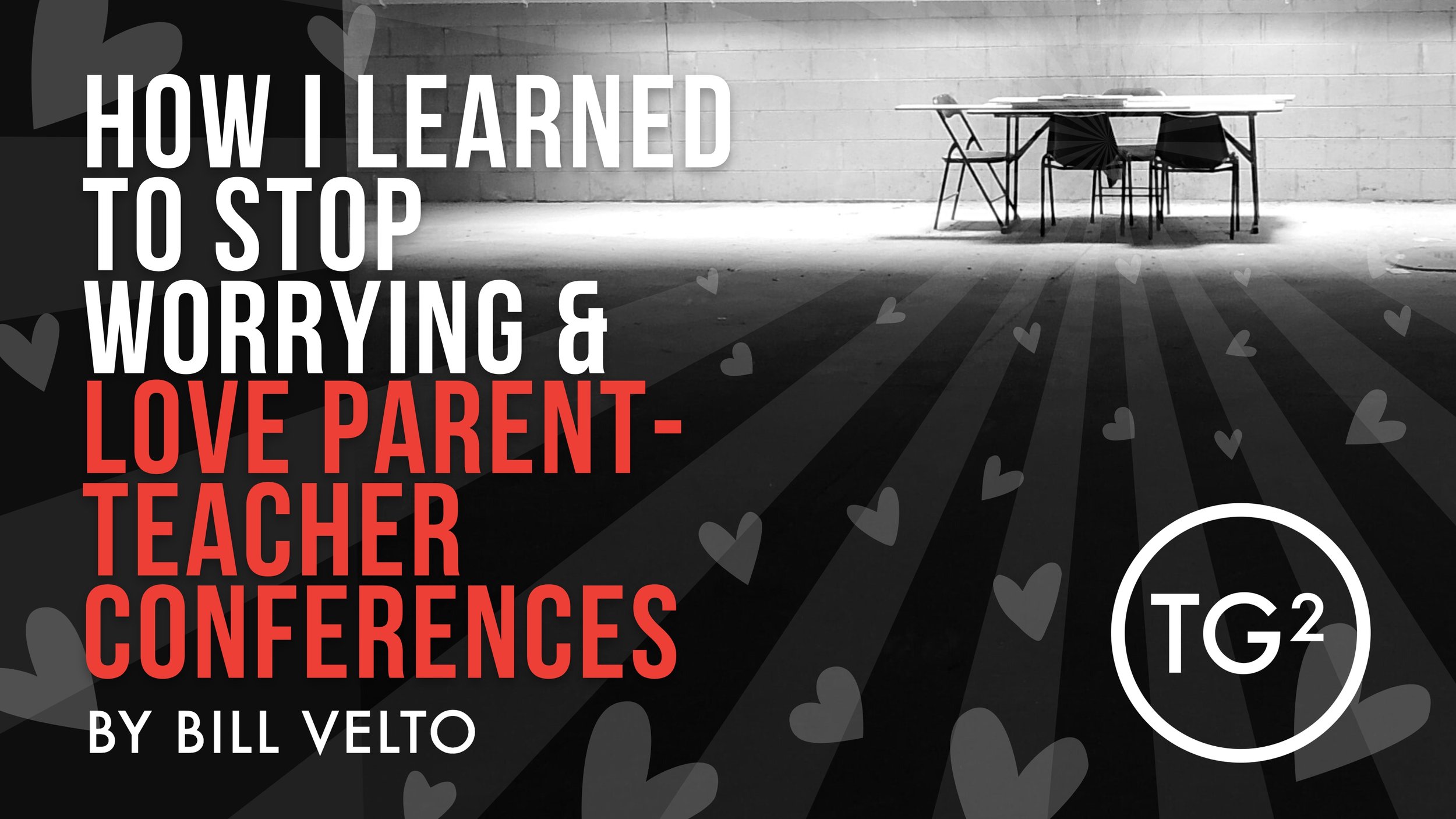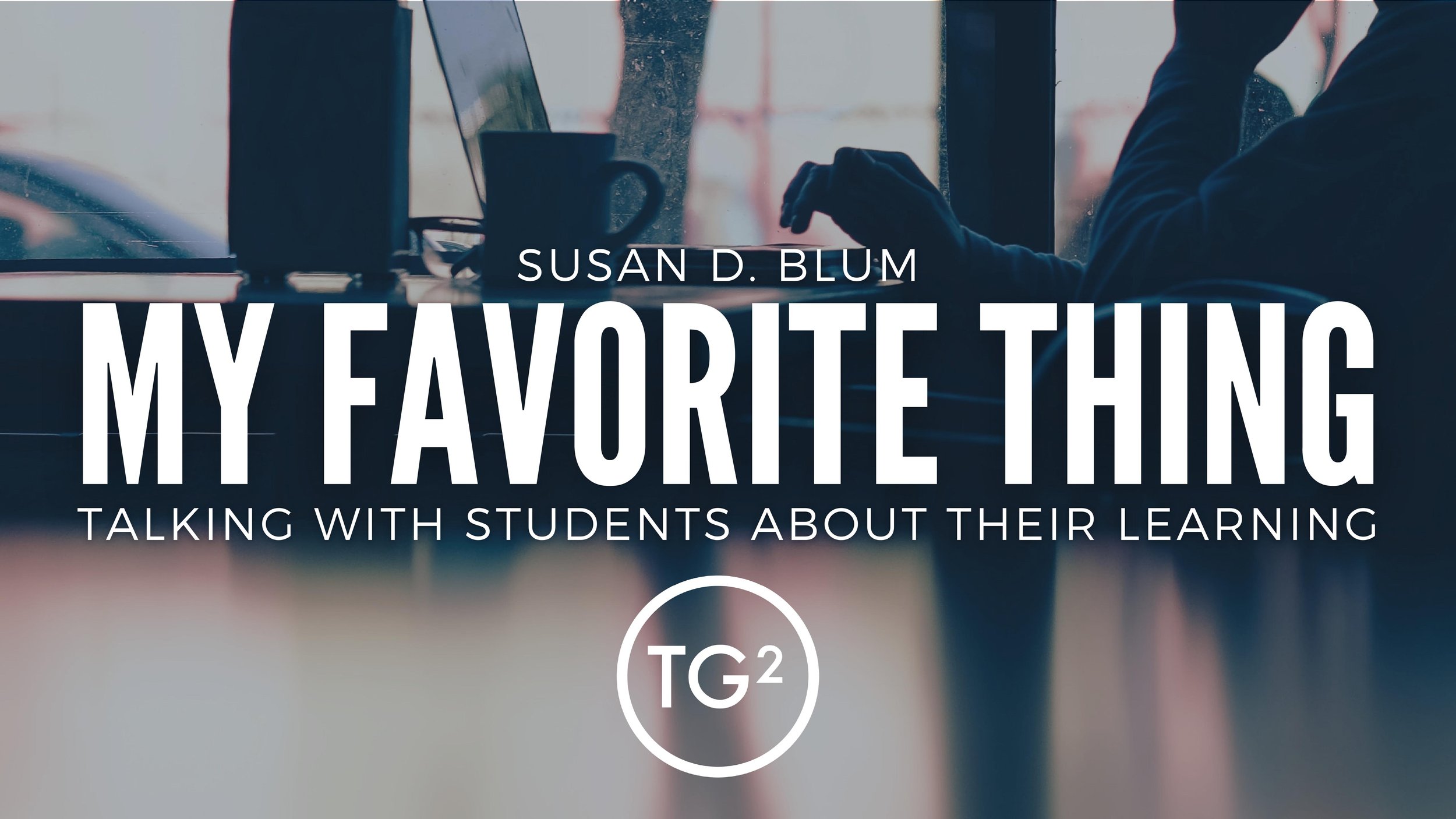How I Learned to Stop Worrying and Love Parent-Teacher Conferences
Bill Velto recounts how, in shifting toward a gradeless environment, students grew in their ability to articulate their learning, and how that learning related to their grade. Conferences came to resemble discussions around the dining table, rather than the combative confrontations that had occurred in the past.
Getting Students Ready For Portfolio Conferences
Learning shouldn't leave the learner out. Empowering students to share their learning through portfolio conferences shifts the dynamic of who's responsible for the learning and highlights what students know and can do rather than on grades and scores.
How Portfolios and Conferences Transformed My AP Science Classroom
Putting agency over one’s grades into the hands of learners allows them to exercise metacognitive skills. When students learn to self-assess accurately, it enables them to transfer skills and understanding well beyond the classroom.
Capturing Learning as it Happens
Creating and maintaining portfolio evidence as the learning happens results in richer, more nuanced representations of learning over time. When students and teachers capture learning as it happens, it is no longer an add-on reporting method after a performance task is completed.
My Favorite Thing: Talking to Students About Their Learning
Susan D. Blum, editor of the book Ungrading: Why Rating Students Undermines Learning (and What to Do Instead), shares how she uses conferences to consult learners in their full humanity (as much as they choose to share it), to learn about their learning and what it means in their lives.
Hover-free Teaching w/Miriam Plotinsky
Miriam Plotinsky, author of Teach More, Hover Less, breaks down hover-free teaching, showing how teachers can free themselves from helicopter habits and allow students greater control of their own learning, while still maximizing learning.
Why I Won’t Just Give You The Answer
I want you to be able to rely on the skills we practice. But more than that, I want you to be able to make purposeful, savvy decisions about why you are writing in the way that you’re writing. This skill, more than any other, is what will serve you well in the future.
I’m a Learning Booster!
When we focus on assessment as a means of communication with and alongside our learners, it leaves space for their inner stories to be told and included. We are building the foundation for student-to-self and student-to-material relationships that can serve well beyond the confines of curricula and classrooms.
What About Work Habits?
Including behaviors in the grade opens the door to the influence of implicit bias. Still, we know that soft skills and work habits are critical to student success. Rachael Kettner Thompson shares how she helps students to reflect on and communicate their growth in these crucial skills…outside of the grade.
The (Un)grading Spectrum
Ungrading is more of a philosophy than a single model that says “do this and your students will learn.” Chris Sarkonak explores ungrading as a spectrum of possibilities that moves us away from the harmful traditional events-based grading that most of us grew up with.
The Ungrading Umbrella
While there is plenty of variety under the ungrading umbrella, we have more commonalities than differences. We all agree the current system needs to change, and we all recognize the way grading is intertwined with many other dimensions of pedagogy.
Go Out on the Branch w/Jay Percell
Jay Percell is an Associate Professor of Teaching and Learning at Illinois State University, an author of several academic essays, and a TEDx speaker. Michelle Cottrell-Williams hosts as Jay shares his reasons for moving away from traditional grades and toward a classroom where learning, improvement, and growth is the focus.












